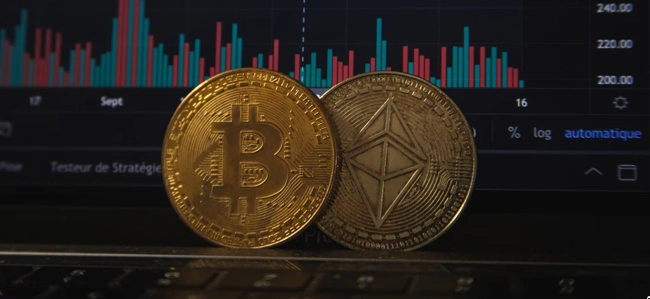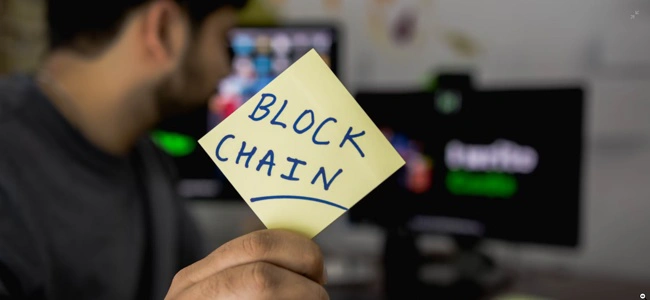Which Blockchain Platform is Known for Enabling Smart Contracts?
The world of blockchain technology is evolving at a breakneck pace, moving far beyond its initial reputation as the engine behind cryptocurrencies like Bitcoin. While Bitcoin demonstrated the power of a decentralized, immutable ledger for financial transactions, it was just the first chapter. The true revolution lies in the programmable nature of this technology, a concept that has opened the door to an entirely new paradigm of digital agreements and applications. This evolution is driven by a groundbreaking innovation: the smart contract.
A smart contract is a self-executing digital agreement with the terms of the contract written directly into lines of code. The code exists on a blockchain network, and once certain, pre-defined conditions are met, the contract automatically executes its terms without the need for a third-party intermediary. This removes the need for lawyers, banks, or other institutions to oversee a transaction, making processes faster, cheaper, and more transparent. When people ask, "Which blockchain platform is known for enabling smart contracts?", the answer is unequivocally Ethereum.
Ethereum is the undisputed pioneer and current leader in the smart contract space. It was the first blockchain platform to introduce a Turing-complete programming language, Solidity, which allows developers to build complex, sophisticated applications on its network. As you read on, we will explore the pivotal role of Ethereum, how smart contracts function, and compare Ethereum to other prominent platforms that have since emerged to challenge its dominance.
The Role of Ethereum in Pioneering Smart Contracts
Ethereum is the first and most widely recognized blockchain platform for enabling smart contracts. Launched in 2015 by Vitalik Buterin, Ethereum was designed to be more than just a cryptocurrency; it was envisioned as a world computer. Its primary innovation was the Ethereum Virtual Machine (EVM), a distributed computing environment that allows developers to run programs—or smart contracts—on the blockchain. The EVM ensures that a smart contract will execute exactly as programmed, without any possibility of censorship, downtime, or third-party interference.

The use of smart contracts on Ethereum has catalyzed the development of decentralized applications (dApps), decentralized finance (DeFi) platforms, and non-fungible tokens (NFTs). Its robust ecosystem, a massive developer community, and battle-tested security have cemented its position as the go-to platform for a vast majority of blockchain projects. The platform’s programming language, Solidity, has become the standard for smart contract development, and its network effect is undeniable.
What is a Smart Contract and How Does It Work?
To truly appreciate the significance of a platform like Ethereum, it's essential to understand what a smart contract is and how it functions at a fundamental level. A smart contract is not a legal document in the traditional sense; it's a piece of code that lives on a blockchain. Think of it as a "if/when... then..." statement. The agreement is coded, and once the "if/when" conditions are met, the "then" action is automatically executed.

Here’s a simple example: Imagine a smart contract for a real estate transaction. The contract could be coded with the following logic: "IF the buyer sends the full payment to the contract's address, AND the seller uploads the digital property deed, THEN the property deed is transferred to the buyer and the payment is released to the seller."
The process is entirely automated and transparent. The code is public and auditable, meaning both parties can verify the terms before committing. Once the conditions are met, the transaction is executed and recorded on the immutable blockchain, providing an unchangeable record of the agreement. This eliminates the need for a notary, a bank, or a lawyer to facilitate the exchange.
The benefits of using smart contracts include:
- Trust and Transparency: The terms of the contract are transparent to all parties and the code is self-executing, removing the need for a trusted third party.
- Efficiency and Speed: Smart contracts automate and streamline processes, eliminating manual paperwork and time-consuming administrative tasks.
- Security: The cryptographic security of the blockchain makes smart contracts highly resistant to hacking and fraud.
- Cost Reduction: By removing intermediaries, the costs associated with traditional transactions are significantly reduced.
Ethereum and its Main Rivals in the Smart Contract Space
While Ethereum pioneered the smart contract, its success has led to a number of competing platforms, each with its own unique approach to scalability, security, and governance. Here’s a comparative look at how some of the leading platforms stack up.
| Platform | Consensus Mechanism | Key Features | Primary Use Cases |
| Ethereum (ETH) | Proof-of-Stake (PoS) | EVM compatibility, large developer community, established ecosystem | DeFi, NFTs, dApps, enterprise solutions |
| Solana (SOL) | Proof-of-History (PoH) & PoS | High transaction speed (thousands of TPS), low fees | High-frequency trading, Web3 gaming, consumer-facing dApps |
| Cardano (ADA) | Proof-of-Stake (Ouroboros) | Peer-reviewed research, layered architecture | Secure dApps, government and academic collaborations |
| Binance Smart Chain (BSC) | Proof of Staked Authority (PoSA) | EVM compatibility, low fees, fast transactions | DeFi, GameFi, quick product launches |
| Tezos (XTZ) | Liquid Proof-of-Stake (LPoS) | On-chain governance, self-amendable blockchain | Financial services, digital asset management |
Ethereum’s transition to a Proof-of-Stake (PoS) consensus mechanism has significantly improved its energy efficiency and scalability. However, newer platforms like Solana and Binance Smart Chain have gained traction by offering much higher transaction speeds and lower fees, addressing some of the core challenges that have historically plagued Ethereum.
The Evolution of Smart Contracts and Future Applications

The application of smart contracts extends far beyond just finance. They are poised to revolutionize numerous industries by automating complex agreements and creating new business models. For example, in the supply chain, a smart contract could automatically release payment to a supplier once a shipment's GPS data confirms its arrival at the destination. In healthcare, it could securely manage and share patient data between providers while ensuring privacy. In the art world, smart contracts facilitate the creation and sale of NFTs, ensuring royalties are automatically paid to the original artist for every subsequent sale.
Looking ahead, the future of smart contracts is tied to several key developments. Layer 2 scaling solutions, like Polygon and Arbitrum, are already making Ethereum more scalable and affordable by processing transactions off-chain before settling them on the main network. Additionally, the concept of "Web3," or the decentralized web, relies heavily on smart contracts to power everything from decentralized social media to gaming platforms where users truly own their digital assets.
Ultimately, the choice of a blockchain platform depends on the specific needs of a project. While Ethereum remains the gold standard, its competitors offer viable alternatives with unique advantages. The competition is healthy and drives innovation across the entire ecosystem, pushing for greater efficiency, security, and usability. The continuous development of these platforms ensures that the world of smart contracts will only continue to grow and become more integrated into our digital lives.
Conclusion
In conclusion, while many blockchain platforms now support them, Ethereum is the blockchain platform that is known for enabling smart contracts. Its pioneering role, robust infrastructure, and thriving ecosystem have made it the foundation upon which the decentralized web is being built. The ability of smart contracts to automate, secure, and streamline agreements without intermediaries is a transformative force, and Ethereum's legacy as the progenitor of this technology is secure.
Ready to build your own decentralized application or token? Explore our custom blockchain development services to bring your innovative ideas to life on the most suitable platform.









